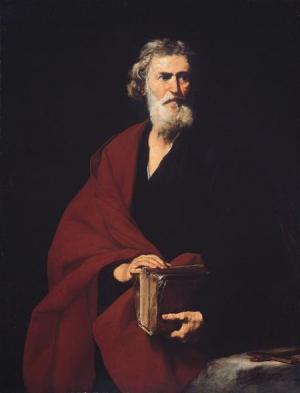| Author: | Alfred Russel Wallace | ISBN: | 9781465610713 |
| Publisher: | Library of Alexandria | Publication: | March 8, 2015 |
| Imprint: | Language: | English |
| Author: | Alfred Russel Wallace |
| ISBN: | 9781465610713 |
| Publisher: | Library of Alexandria |
| Publication: | March 8, 2015 |
| Imprint: | |
| Language: | English |
IT was on the morning of the 26th of May, 1848, that after a short passage of twenty-nine days from Liverpool, we came to anchor opposite the southern entrance to the River Amazon, and obtained our first view of South America. In the afternoon the pilot came on board, and the next morning we sailed with a fair wind up the river, which for fifty miles could only be distinguished from the ocean by its calmness and discoloured water, the northern shore being invisible, and the southern at a distance of ten or twelve miles. Early on the morning of the 28th we again anchored; and when the sun rose in a cloudless sky, the city of Pará, surrounded by the dense forest, and overtopped by palms and plantains, greeted our sight, appearing doubly beautiful from the presence of those luxuriant tropical productions in a state of nature, which we had so often admired in the conservatories of Kew and Chatsworth. The canoes passing with their motley crews of Negroes and Indians, the vultures soaring overhead or walking lazily about the beach, and the crowds of swallows on the churches and house-tops, all served to occupy our attention till the Custom-house officers visited us, and we were allowed to go on shore. Pará contains about 15,000 inhabitants, and does not cover a great extent of ground; yet it is the largest city on the greatest river in the world, the Amazon, and is the capital of a province equal in extent to all Western Europe. It is the residence of a President appointed by the Emperor of Brazil, and of a Bishop whose see extends two thousand miles into the interior, over a country peopled by countless tribes of unconverted Indians. The province of Pará is the most northern portion of Brazil, and though it is naturally the richest part of that vast empire, it is the least known, and at present of the least commercial importance. The appearance of the city from the river, which is the best view that can be obtained of it, is not more foreign than that of Calais or Boulogne. The houses are generally white, and several handsome churches and public buildings raise their towers and domes above them. The vigour of vegetation is everywhere apparent. The ledges and mouldings support a growth of small plants, and from the wall-tops and window-openings of the churches often spring luxuriant weeds and sometimes small trees. Above and below and behind the city, as far as the eye can reach, extends the unbroken forest; all the small islands in the river are wooded to the water's edge, and many sandbanks flooded at high-water are covered with shrubs and small trees, whose tops only now appeared above the surface. The general aspect of the trees was not different from those of Europe, except where the "feathery palm-trees" raised their graceful forms; but our imaginations were busy picturing the wonderful scenes to be beheld in their dark recesses, and we longed for the time when we should be at liberty to explore them.
IT was on the morning of the 26th of May, 1848, that after a short passage of twenty-nine days from Liverpool, we came to anchor opposite the southern entrance to the River Amazon, and obtained our first view of South America. In the afternoon the pilot came on board, and the next morning we sailed with a fair wind up the river, which for fifty miles could only be distinguished from the ocean by its calmness and discoloured water, the northern shore being invisible, and the southern at a distance of ten or twelve miles. Early on the morning of the 28th we again anchored; and when the sun rose in a cloudless sky, the city of Pará, surrounded by the dense forest, and overtopped by palms and plantains, greeted our sight, appearing doubly beautiful from the presence of those luxuriant tropical productions in a state of nature, which we had so often admired in the conservatories of Kew and Chatsworth. The canoes passing with their motley crews of Negroes and Indians, the vultures soaring overhead or walking lazily about the beach, and the crowds of swallows on the churches and house-tops, all served to occupy our attention till the Custom-house officers visited us, and we were allowed to go on shore. Pará contains about 15,000 inhabitants, and does not cover a great extent of ground; yet it is the largest city on the greatest river in the world, the Amazon, and is the capital of a province equal in extent to all Western Europe. It is the residence of a President appointed by the Emperor of Brazil, and of a Bishop whose see extends two thousand miles into the interior, over a country peopled by countless tribes of unconverted Indians. The province of Pará is the most northern portion of Brazil, and though it is naturally the richest part of that vast empire, it is the least known, and at present of the least commercial importance. The appearance of the city from the river, which is the best view that can be obtained of it, is not more foreign than that of Calais or Boulogne. The houses are generally white, and several handsome churches and public buildings raise their towers and domes above them. The vigour of vegetation is everywhere apparent. The ledges and mouldings support a growth of small plants, and from the wall-tops and window-openings of the churches often spring luxuriant weeds and sometimes small trees. Above and below and behind the city, as far as the eye can reach, extends the unbroken forest; all the small islands in the river are wooded to the water's edge, and many sandbanks flooded at high-water are covered with shrubs and small trees, whose tops only now appeared above the surface. The general aspect of the trees was not different from those of Europe, except where the "feathery palm-trees" raised their graceful forms; but our imaginations were busy picturing the wonderful scenes to be beheld in their dark recesses, and we longed for the time when we should be at liberty to explore them.















